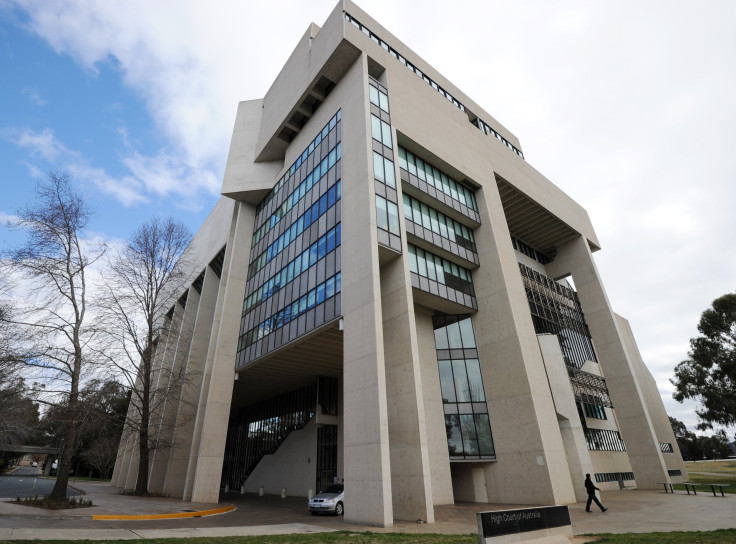BRCA1 Gene Patent Ruling: Australia's Top Court Says Human Genes Are Not 'Patentable Invention'

The High Court of Australia Wednesday ruled in favor of a cancer survivor in a landmark judgment against an American biotech firm. The top court unanimously ruled that Myriad Genetics, Inc.’s patent claims over a gene coding for a BRCA1 protein, which acts as a tumor suppressor, were not valid.
“The Court held that, having regard to the relevant factors, an isolated nucleic acid, coding for the BRCA1 protein, with specified variations, is not a manner of manufacture,” the court said, in its ruling. “While the invention claimed might be, in a formal sense, a product of human action, it was the existence of the information stored in the relevant sequences that was an essential element of the invention as claimed.”
Mutations in the BRCA1 gene put women at an increased risk of breast and ovarian cancer. The National Cancer Institute estimates that women with the mutated gene have a 55 percent to 65 percent chance of developing breast cancer -- as opposed to a 12 percent in women without the harmful mutation -- and 39 percent chance of developing ovarian cancer -- compared with 1.3 percent in women not carrying the mutation.
Many carriers of the mutation, such as actress Angelina Jolie, choose to test for it so they can have preventative surgery. The patent for the gene was held by Myriad Genetics, which had licensed it for use in Australia by a company called Genetic Technologies, giving the companies a monopoly over tests that could detect it.
“[The judgment] provides certainty that testing and research on the BRCA1 gene cannot be monopolized in Australia and can be carried out widely and cost-effectively,” Rebecca Gilsenan, a lawyer at Maurice Blackburn -- the law firm that represented cancer survivor Yvonne D'Arcy -- said, in a statement. “Myriad did not 'create, make or alter' the genetic code. This is what we have argued since the outset.”
D’Arcy's case was previously dismissed by Australia’s Federal Court, which ruled in favor of the two companies holding the patent.
“I'm just hoping that other countries will see sense and follow us and the Americans,” D'Arcy told ABC News, referring to a 2013 judgment by the U.S. Supreme Court, when it ruled that isolation of BRCA1 itself was not enough to allow genes to be patented.
“For all those people who do have the genetic footprint for breast cancer or any cancer basically, it's a win for them because now they're forewarned,” she added.
© Copyright IBTimes 2024. All rights reserved.






















